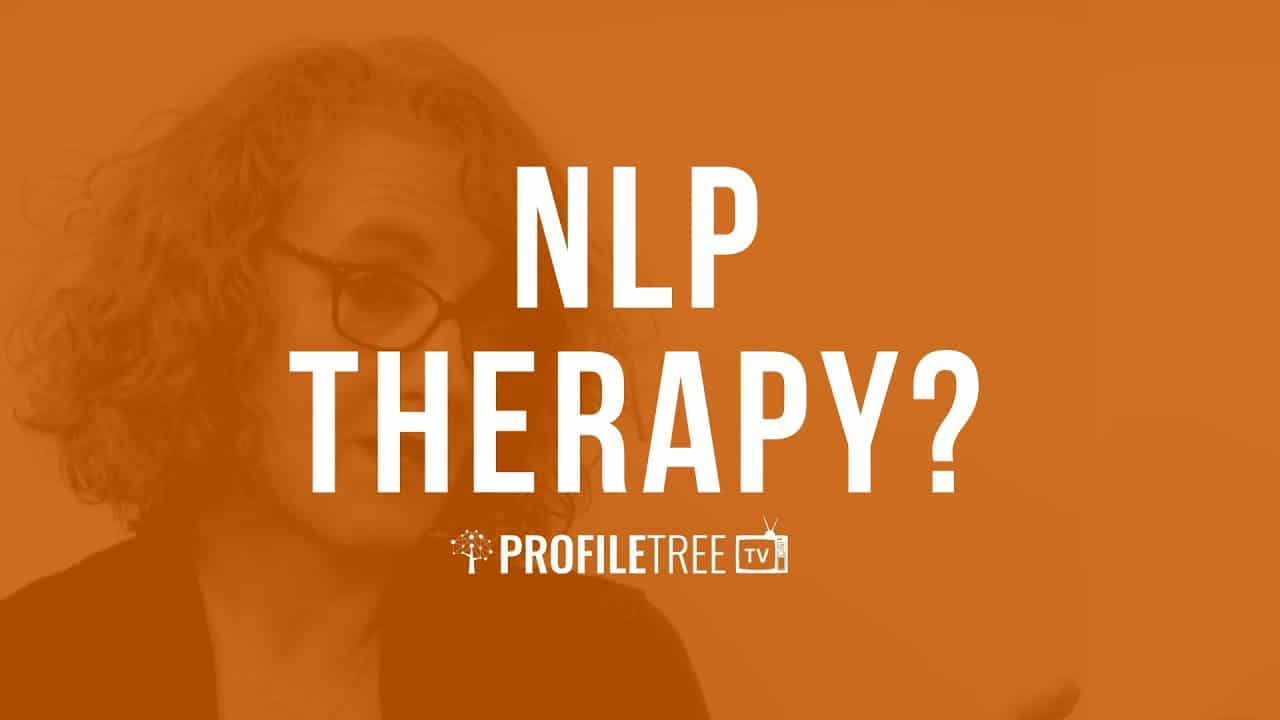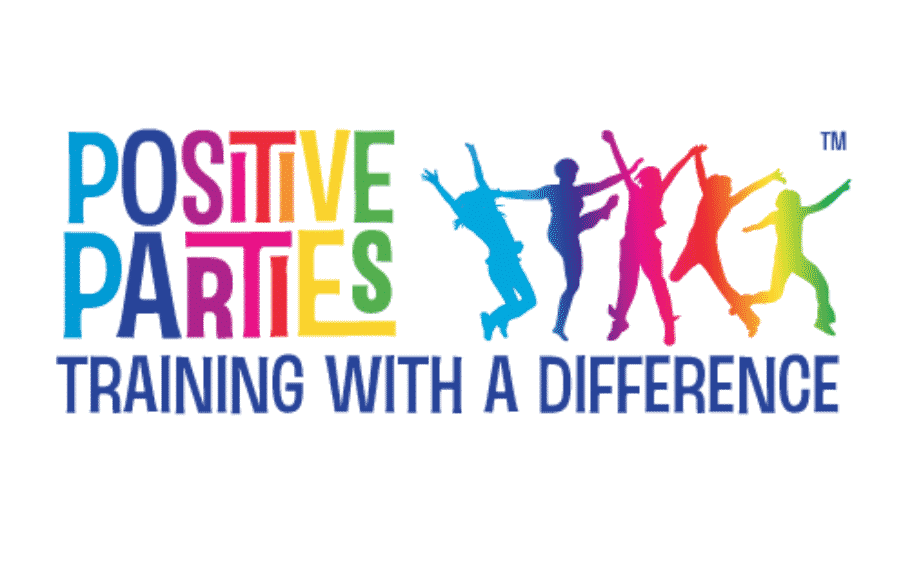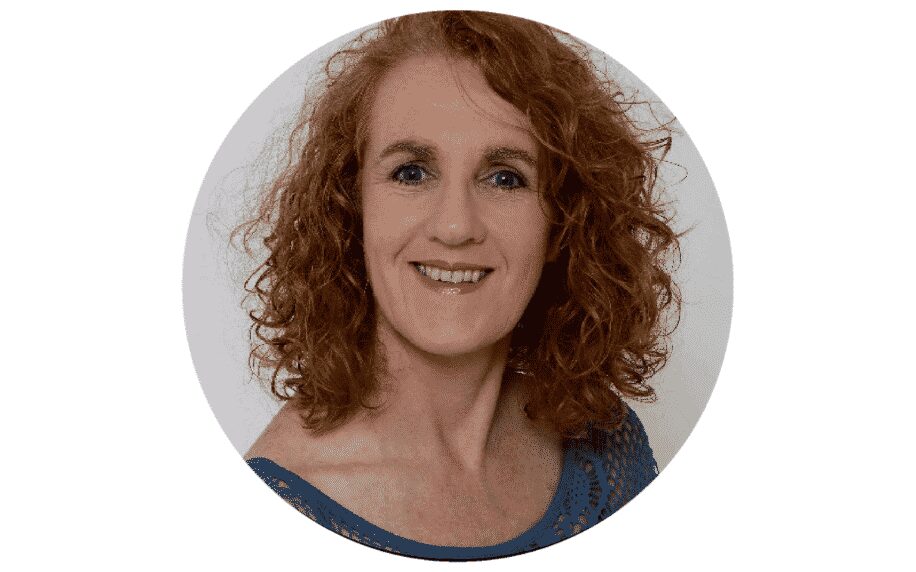How can we pursue positivity to boost our wellbeing at work and at home? How can emotional intelligence make a difference in our lives?
A visit by ‘training with a difference’ specialist Denise Devlin to the ProfileTree studio offered a chance to explore these topics, plus gain an insight into NLP therapy.
Ever wondered how some people overcome seemingly insurmountable challenges while others struggle with everyday anxieties? The answer might lie in NLP therapy, a fascinating approach that taps into the power of the mind to create lasting change.
What is NLP Therapy?
Imagine being able to reprogram your internal “software” to achieve your goals, manage emotions, and foster healthier relationships. That’s essentially what NLP therapy is all about. NLP stands for Neuro-Linguistic Programming, a blend of neuroscience, linguistics, and psychology that explores the connection between our thoughts, language, and behavior.
Think of it like learning a new language for your inner world. Through NLP techniques, you can identify limiting beliefs, negative patterns, and unconscious triggers that might be holding you back. By understanding these internal processes, you can then learn to rewrite the script and direct your mind towards positive outcomes.

Concepts and Techniques:
NLP therapy incorporates a diverse toolbox of techniques, each aimed at empowering you to take control of your mental landscape. Some key concepts include:
- Neurological Levels: This model explores the different levels of thought and experience, helping you understand how your beliefs and values influence your actions.
- Representational Systems: NLP recognizes that we process information through our senses (visual, auditory, kinesthetic, etc.) and uses this understanding to tailor communication and interventions.
- Anchoring: This technique involves associating positive emotions or states with specific triggers, allowing you to access those resources on demand.
- Metaphors: NLP uses metaphors as powerful tools for reframing limiting beliefs and creating new perspectives.
- Submodalities: This advanced technique delves into the finer details of our sensory experiences, enabling us to modify and enhance them for greater well-being.
Origins and History:
NLP therapy emerged in the 1970s from the groundbreaking work of Richard Bandler and John Grinder, two American researchers. They studied the communication patterns of highly successful individuals in various fields, such as therapy, sales, and athletics, and sought to identify the underlying principles that contributed to their achievements. By modeling these patterns and developing practical techniques, they laid the foundation for what we now know as NLP.
NLP therapy has since evolved into a diverse and widely-used approach, applied in various contexts, including:
- Personal development: Overcoming fears, enhancing communication skills, boosting confidence, and achieving personal goals.
- Psychotherapy: Addressing anxiety, depression, phobias, and other mental health concerns.
- Business and communication: Improving leadership, negotiation skills, and team dynamics.
- Education: Enhancing learning outcomes and fostering student motivation.
Whether you’re seeking personal growth, improved relationships, or simply a deeper understanding of how your mind works, NLP therapy offers a unique and empowering approach to creating positive change in your life.
To learn more, watch our full Business Leaders episode with Denise below. Or, read on for the highlights.
Table of Contents
The Work of Positive Parties
The ‘Positive Parties’ Founder and CEO began by explaining the innovative work of her business and her own professional expertise.
“What we do is we deliver workshops and seminars promoting positive mental health and positive mental attitude in a unique, party-style environment.
“The idea came when I finished my NLP (neuro-linguistic programming) in 2009. My background is in community development education. I’m a communication studies graduate, then became a life coach and NLP practitioner.”
So, what exactly is NLP therapy?
“NLP is all about our speech (neuro), our language (linguistic) and our behaviours, and it really is about teaching people how to think and feel and act differently. It’s all about ‘how’ we do things. It’s great for personal development and communication, it’s a fantastic tool.”
Neuro-linguistic programming or NLP is a way of changing someone’s thoughts and behaviors to help achieve desired outcomes for them.
The popularity of NLP has become widespread since it started in the 1970s. Its uses include treatment of phobias and anxiety disorders and improvement of workplace performance or personal happiness.

NLP Therapy in Business
Denise describes her business Positive Parties as offering ‘training with a difference’. She outlined the vision she developed for bringing NLP into businesses in a new way.
“I decided that I’d love to do training that would really take this into companies, but instead of doing handouts and presentations I wanted to make it interactive…I wanted to deliver something that would be positive and fun.”
This fresh experience for participants has been welcomed by businesses.
“As Einstein said ‘make it simple, make it fun’, so that is the whole ethos really behind it. It’s giving people all these tools and techniques, but when they come away from a Positive Party they have laughed and they have had so much fun because they’re going to learn then.
“They don’t go away with handouts that you’re just going to put in a top drawer and never look at again, they go away with party bags, they have prizes, lots of funny photographs will have been taken.”
But there’s science beneath the party approach to enable positive thinking: “Every tool and technique we do through the whole session of that day is teaching people how to be more positive, how to use brain tools and techniques to take away negative thinking, to look at stress, to look at mindfulness. It’s simple and it’s fun.”

To discover much more about positivity, NLP and emotional intelligence, see our full video interview. To find out more about Positive Parties, visit the official website.
NLP Techniques: Tools for Transformation
Now that we’ve explored the fundamental principles of NLP therapy, let’s delve deeper into some powerful techniques that unlock the door to lasting change. These tools, honed over decades of research and practice, equip you to navigate your inner landscape and sculpt the life you desire.
Rapport Building and Mirroring: Imagine effortlessly connecting with anyone, building instant trust, and fostering understanding. NLP’s rapport techniques, like mirroring – subtly matching body language and speech patterns – create a bridge of connection, allowing you to establish safe and effective communication.
Representational Systems (VAKOG): We all process information through unique filters – visual, auditory, kinesthetic, olfactory, and gustatory (VAKOG). NLP recognizes these individual preferences and tailors its approach to resonate with each person’s dominant representational system. Imagine guiding someone to visualize success or anchoring a positive state with a specific scent, tapping into the power of their unique sensory experience.
Anchoring: Have you ever smelled a familiar perfume and been transported back to a cherished memory? Anchoring harnesses this natural process, linking positive emotions or states with specific triggers – a touch, a word, or even a melody. These anchors become readily available resources, allowing you to instantly access calm, confidence, or whatever state serves you best in any situation.
Reframing: Ever felt discouraged by a negative thought pattern? NLP’s reframing techniques provide a fresh perspective, transforming those limiting beliefs into empowering opportunities. Imagine viewing a past failure as a valuable learning experience or reframing a fear into an exciting challenge. By shifting your internal narrative, you unlock new possibilities and empower yourself to move forward.
Parts Integration: We are all a constellation of different parts, some helpful, some holding us back. NLP’s parts integration techniques facilitate communication and harmony within this inner ecosystem. Imagine acknowledging and validating a critical inner voice, then gently guiding it towards alignment with your highest aspirations. This fosters internal peace and empowers you to act with greater unity.
Timeline Work: Time can be a powerful force, shaping our beliefs and influencing our present. NLP’s timeline techniques allow you to revisit significant past experiences, reframe their impact, and even release any lingering emotional baggage. Imagine revisiting a childhood fear, processing it from an adult perspective, and rewriting the story, freeing yourself from its hold.
Modeling: Excellence is contagious. NLP’s modeling techniques allow you to identify and replicate the habits, patterns, and strategies of highly successful individuals. Imagine studying the communication style of a charismatic leader, the focus of a champion athlete, or the resilience of a successful entrepreneur. By incorporating their best qualities into your own repertoire, you accelerate your own journey towards mastery.
Applications and Benefits of NLP Therapy:
The transformative power of NLP extends far beyond the therapist’s office. These techniques can be applied in a multitude of contexts, unlocking benefits like:
- Personal Development: Overcome fears, enhance communication skills, boost confidence, and achieve personal goals.
- Psychotherapy: Address anxiety, depression, phobias, and other mental health concerns.
- Business and Communication: Improve leadership, negotiation skills, and team dynamics.
- Education: Enhance learning outcomes and foster student motivation.
- Relationships: Deepen communication, build trust, and resolve conflict.
- Creativity and Performance: Tap into your full potential and unlock flow states in any area of life.
Ultimately, NLP therapy is an empowering journey of self-discovery and transformation. By understanding your mind’s inner workings and mastering the tools it offers, you can sculpt the life you desire, one empowered step at a time.
How NLP Therapy Empowers You
Imagine a life free from limiting beliefs, where fears no longer hold you back and goals are conquered with unwavering confidence. NLP therapy can make this vision a reality, providing a unique toolkit for personal growth and lasting change.
1. Breaking Free from Limiting Beliefs:
NLP offers sophisticated techniques like reframing and parts integration to identify and transform limiting beliefs. Think of a belief like “I’m not good enough” as a worn-out record playing in your head. NLP helps you rewrite the script, reframing it into “I have the potential to learn and grow,” silencing the negativity and empowering you to reach your full potential.
2. Conquering Fears and Phobias:
Facing your fear of heights or public speaking can feel insurmountable. NLP techniques like anchoring and timeline work can be your allies. Anchoring allows you to associate a feeling of calm with a specific trigger, like a hand gesture. Timeline work empowers you to revisit the root of your fear, understand its origins, and rewrite the story, diminishing its power over you.
3. Setting and Achieving Goals:
NLP’s neurological levels model teaches you to align your values, beliefs, and capabilities with your goals. Techniques like well-formed outcome statements ensure your goals are clear, specific, and achievable. With a roadmap and the tools to overcome obstacles, success becomes attainable and motivating.
4. Mastering Communication and Relationships:
NLP’s focus on rapport building and representational systems equips you to connect with others on a deeper level. By understanding and adapting to different communication styles, you build trust and enhance relationships, both personal and professional.
5. Boosting Motivation and Self-Confidence:
NLP techniques like anchoring and metaphors can become your secret weapons for building self-confidence and fueling motivation. Imagine anchoring a feeling of empowerment to a specific word or phrase, ready to access it whenever needed. NLP also helps you replace negative self-talk with positive affirmations, fostering a self-belief that propels you forward.
NLP Therapy vs. Traditional Therapy: A Closer Look
Both NLP therapy and traditional therapy strive to improve mental well-being, but they approach it in distinct ways. Understanding these differences can help you determine which might be a better fit for your individual needs.
1. Duration:
- NLP Therapy: Generally offers shorter treatment durations, often focusing on specific issues or goals. This is because NLP emphasizes practical tools and techniques to modify thought patterns and behaviors in the present, rather than delving deeply into the root causes of problems.
- Traditional Therapy: Often involves longer and more complex treatment plans, exploring the origins of your issues and addressing underlying emotional or psychological factors. This can be a slower process but may be necessary for resolving deeper-seated difficulties.
2. Focus:
- NLP Therapy: Takes a solution-oriented approach, teaching you to identify and overcome limiting beliefs, negative patterns, and unhelpful behaviors. It prioritizes empowering you with actionable tools and skills to achieve your desired outcomes.
- Traditional Therapy: Often delves into the “why” behind your problems, exploring past experiences and their impact on your present state. This approach aims to understand the root of your difficulties and address them at their source to facilitate lasting change.
3. Tools and Techniques:
- NLP Therapy: Employs a range of language-based and communication-focused techniques like reframing, anchoring, and mirroring. These techniques aim to modify your internal dialogue, trigger positive emotions, and build rapport with others.
- Traditional Therapy: Utilizes various approaches depending on the specific theory or modality employed. These may include talk therapy, cognitive-behavioral therapy (CBT), psychodynamic therapy, or other evidence-based interventions.
Choosing the Right Approach:
The choice between NLP therapy and traditional therapy depends on your individual needs and preferences. Consider the following factors:
- Nature of your concerns: Are you dealing with a specific issue like anxiety or a phobia, or do you have deeper-seated emotional or psychological challenges?
- Desired pace of change: Do you seek quick solutions and action-oriented tools, or are you open to a more in-depth exploration of your inner world?
- Personal learning style: Do you respond well to practical techniques and communication exercises, or do you prefer a more introspective and psychoanalytic approach?
Ultimately, both NLP therapy and traditional therapy can be valuable tools for personal growth and well-being. Understanding their differences and aligning them with your needs can empower you to choose the approach that offers the most effective support on your journey to personal betterment.
Frequently Asked Questions about NLP Therapy
Q: What is the difference between NLP therapy and traditional therapy?
A: Both approaches aim to improve mental well-being, but NLP leans towards a solution-oriented and action-focused approach, utilizing language and communication techniques. Traditional therapy often delves deeper into the root causes of issues and might take longer.
Q: Is NLP therapy scientifically proven?
A: While some studies show promise for specific applications, large-scale research is still needed to solidify its overall effectiveness. It’s important to approach it with cautious optimism and consider evidence-based options for serious mental health concerns.
Q: Are there any risks associated with NLP therapy?
A: The main concern lies in potential manipulation if NLP is not practiced ethically by qualified professionals. Choose a certified therapist with a background in mental health and prioritize informed consent before starting treatment.
Q: How can I find a qualified NLP therapist?
A: Look for practitioners certified by a reputable NLP training organization, with a background in mental health and therapy. Prioritize ethical practice, open communication, and a clear understanding of their approach.
Q: Where can I learn more about NLP?
A: Numerous books, websites, and even online courses offer further information about NLP principles and applications. However, prioritize reliable sources and research the credentials of any trainers or practitioners you come across.
Conclusion: Unleashing Your Potential with NLP Therapy
NLP therapy, though not without its limitations, offers a unique and empowering path for personal growth and transformation. Its focus on language, communication, and solution-oriented thinking can equip individuals with valuable tools to overcome challenges, achieve goals, and build deeper connections.
However, it’s crucial to approach NLP with an informed perspective, understanding its strengths and limitations. Prioritize evidence-based practices, choose qualified therapists, and maintain realistic expectations. When embraced with awareness and caution, NLP can become a powerful tool on your journey towards self-discovery, well-being, and living a more fulfilling life.
Remember, NLP is just one facet of the personal growth landscape. Explore various options, consult with mental health professionals, and ultimately choose the path that resonates best with your unique needs and aspirations.
Become a Part of Our Business Leaders Series
Interested in featuring on our Business Leaders series? In our acclaimed series, we share amazing advice, tips and stories from business owners, managers and senior leaders.
From growing your business to looking after your staff, new industry insights and innovative ideas – we cover everything to inspire professionals across all sectors. If you want to become a part of it, simply drop us a message.


